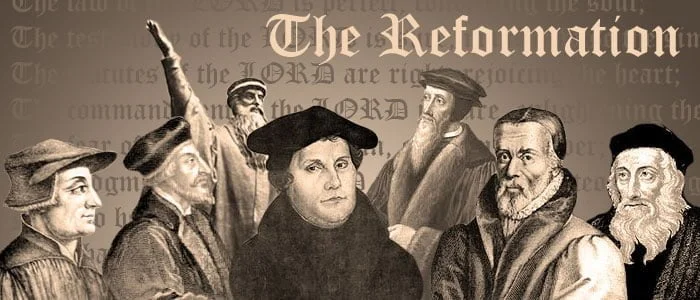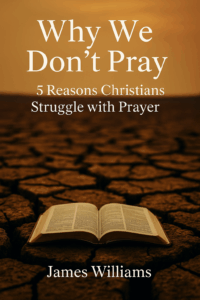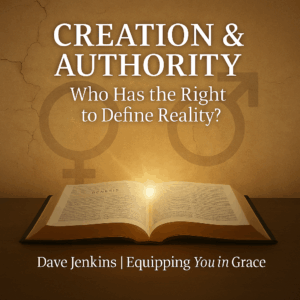⏱️ Estimated Reading Time: 9 min read
Over five hundred years ago, on October 31, Martin Luther nailed his 95 Theses to the Wittenberg Castle Church door. This action launched a series of disputations about the Bible, the gospel, and the church—to name only a few. In time, Luther’s action would be considered the spark which ignited the Protestant Reformation.
But what is the Protestant Reformation? And why do we need to know about it? And what is there to learn?
To answer those questions and others like them, let me give four reasons why the Reformation should be highlighted and then a series of multi-media resources that might help you better understand the history and value of the Reformation.
Four Reasons to Highlight the Reformation
- The Protestant Reformation is the largest revival in church history.
When American Christians think of revivals, they might think of big tents and sawdust trails. Or, if they are more historically inclined, the First or Second Great Awakening may come to mind. Still, in church history, no genuine revival and outpouring of the Spirit (as evidenced by gospel proclamation, genuine conversions, and churches planted) outpaces the Protestant Reformation of the 16th Century.
For close to a century, two generations of Reformers preached the gospel, translated the Bible, and planted churches, such that their effects are still felt today. For instance, Martin Luther and John Calvin’s writings continue to feed the church. The churches begun in that period continue to preach the gospel—sadly, with many deviations and perversions included. But most importantly, the Reformation principles that recovered the gospel—Scripture alone, Christ alone, faith alone, grace alone, and God’s glory alone—continue to motivate and instruct the Protestant Church today.
In its day, the preaching of the gospel, emphasizing grace over works, justification by faith, trust in the finished work of Christ, and the sufficiency of God’s Word, led to mass conversions. Protestant churches sprung up in urban centers throughout Germany, Switzerland, the Netherlands, and the United Kingdom. In short, the Reformation recovered the gospel and with-it freed thousands (and in years to come millions) of souls from the enslaving doctrines of the Catholic Church.
Thus, we should consider the Reformation because it is the largest revival in church history.
- The Protestant Reformation saw Augustine’s doctrine of salvation defeat his doctrine of the church.
It is not a total surprise that Luther was a monk from the Augustinian order. Augustine was a bishop in Hippo whose life straddled the 4th and 5th Centuries. Saved at 31 from a life of unchastity, he preached and wrote extensively about God’s grace. While wrongly assigning grace to the sacraments, he rightly esteemed the freeness of grace in salvation. In time, however, Augustine’s doctrine of the church, with its strong sense of sacramentalism, overrode his doctrine of salvation.
In the Reformation, this was reversed. And in Luther, especially in his book The Bondage of the Will, we see that man as a sinner had no hope of reaching God through sacramental works or natural theology (the attempt to reach God apart from Scripture). Rather, man is entirely dependent on God’s sovereign grace.
Therefore, in the Reformation, we see the Augustine’s doctrine of salvation defeating his doctrine of the church.
- The Protestant Reformation reclaimed the Word of God.
For centuries, church authority took functional precedence over the Word of God. Sure, the Medieval Church believed in the authority of the Bible, but only as the Pope and his underlying bishops interpreted it. In the Reformation, this all changed.
For instance, in To the Christian Nobility of the German Nation (1520), Luther objected to Pope as the sole interpreter of Scripture. In that tract, he urged for the priesthood of all believers. Later he worked to put the Bible in the hands of every German. Indeed, with the invention of the printing press (1453), access to the original Greek manuscripts along with new translations (The Textus Receptus in 1517), Luther was able to go back to the sources Ad Fontes) to see what Scripture said. And more than that, in his own translation of the Bible into German, he gave his people a vernacular Bible—something they had never had, something the church actually resisted.
In the Reformation, therefore, the publication of Scripture and the proclamation of the Bible became central. In Protestant churches, the pulpit was moved from the side to the center. Biblical exposition took center stage over the mass. Icons were pulled down, and the church became a people of the Book. No longer did Christians depend on the mediation of priests; they had direct access to God through Christ, as declared in the God’s Word.
Historically, the printing press and the spirit of humanism (think literary studies and the humanities, not secular confidence in humanity) were providential precursors to the rise of the Reformation. Moreover, it was biblical scholars—Luther and Calvin were trained as lawyers before becoming pastors—that led the church and taught the people how to read the Bible and to read. In truth, literacy sky-rocketed after the Protest Reformation, as Christians now sought to read the Bible for themselves—a blessing never afforded to Christians in the Medieval period.
Thus, the Reformation stands as a testimony to the power of the preached Word and the need for God’s people to remain in God’s holy book.
- The Protest Reformation is our heritage.
While the church I pastor identifies itself as a non-denominational Bible church, our pedigree goes back to the Reformation and beyond. The same is true for any other evangelical church—i.e., one who preaches the gospel as the sole means of salvation. Indeed, both the gospel that the Reformation recovered and the spirit of zeal for God’s Word are hallmarks of our evangelical heritage.
It’s probably true that American evangelicals don’t do well with history. Many know little of the events that preceded Billy Graham. But this is not a reason to ignore history; this is the reason why we need to learn of the Reformation. No Christian self-generated his own salvation. Faith comes by hearing the Word of Christ (Romans 10:17), and five hundred years ago, this message of the gospel was nearly muted.
A few pockets of gospel proclamation occurred in the years before Martin Luther. Names like John Wycliffe and Jan Hus stand out are pre-Reformation Reformers. But under God’s providence, the beginning of the evangelical church (i.e., not a political entity, but a people created by the gospel and committed to proclaiming the gospel) goes back to the Protestant Reformation.
That we have Bibles in our hands (or on our phones) and Study Bibles on our shelves is a tribute to the work of God in the 16th Century. Knowing that millions (if not billions of people) do not have the Bible in their hands or in their language, we must not take this gift for granted. Studying the Reformation then is a key part of understanding the grace of God in our life and the goodness of being Protestant.
Resources on the Reformation
If you are looking to learn more about the Reformation, here are three types of resources (books, sermons, and videos) that will help you go deeper into this glorious history of God’s work in the church.
Three Books
- Rescuing the Gospel: The Story and Significance of the Reformation by Erwin W. Lutzer. This incredibly accessible volume introduces the reader to the key leaders and high points of the Reformation. For someone desiring to know the basic history, this is the place to start.
- Why the Reformation Still Matters by Michael Reeves and Tim Chester. This book delves more deeply into the theology of the Reformation. It talks about the formal principle of the Reformation (Sola Scriptura) and material principle(s) (Sola Gratia, Sola Fide, and Solus Christus). In short, this book examines the most important doctrinal matters related to the Reformation.
- Here I Stand: A Life of Martin Luther by Roland Bainton. This biography of Martin Luther is the classic, modern work on the great German Reformer. While in-depth, Bainton captures the intensity of Luther and the work God did through him. Since you cannot understand the Reformation apart from Luther, this is a must-read for anyone wanting to know what drove this man. You might also find helpful for kids, Paul Maier’s, Martin Luther: A Man Who Changed the World.
Three Sermons
Long before seminary, I learned (to value) church history by listening to the biographical sermons of John Piper. Here are three sermons on Martin Luther, John Calvin, and William Tyndale that help tap into the history of the Reformation.
- Martin Luther: Lessons from His Life and Labor
- John Calvin: The Divine Majesty of the Word
- William Tyndale: Always Singing One Note, A Vernacular Bible
The Reformation in 1, 11, and 17 Videos
Finally, if you’re interested in a video on the Reformation, you can find a video (series) to suit your needs, whether it’s one, eleven, or seventeen videos in length.
- Martin Luther and the Protestant Reformation — Part 8 of Christianity Made Easy by Timothy Paul Jones (Ph.D., The Southern Baptist Theological Seminary)
- The Protestant Revolt — An 11-part video series on the Reformation, produced by Westminster Theological Seminary.
- Historical Theology for Everyone — 17 animated videos on the Reformation, narrated by Ryan Reeves (Ph.D., Cambridge University)
As you can see, there is much to learn about the Reformation. And the reason why we take up this study is not just to learn history, lest we repeat it. Instead, by learning this Reformation history, we learn more clearly what the gospel of Jesus Christ is and how we can continue to contend for the faith once for all delivered to the saints (Jude 3).
Thankfully, the brave men and women of the Reformation era recovered that Apostolic gospel. And we too must now carry the banner, championing the truths of the gospel, so that another generation does not have to recover the gospel but may rejoice in the gospel we deliver to them. To that end, let us take up God’s Word and learn from faithful teachers who have delivered the Scriptures to us.



